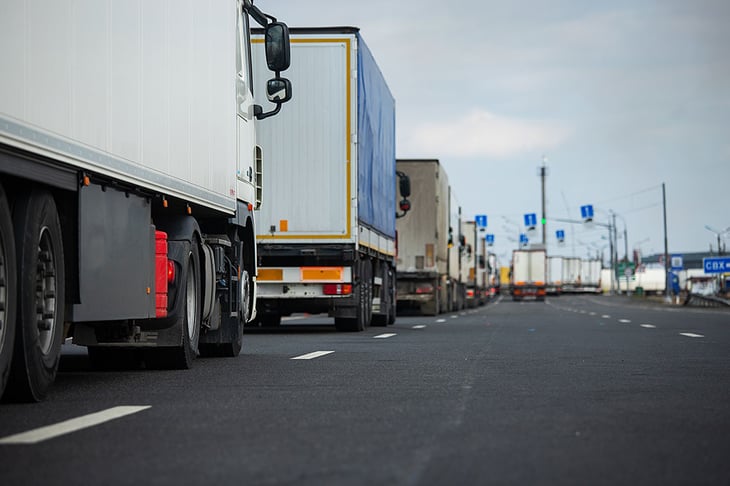Top Tips For Friction-Free Cross-Border Freight
APN shares top tips list for customers handling customs clearances
One month on from Brexit, the pallet networks have shared the most common errors freight customers are making which can cause consignment delays – and a checklist to ensure smooth deliveries, anywhere.

The Association of Pallet Networks (APN) has compiled a list of the top tips for freight customers sending pallets across borders, with input from all the UK pallet networks.
The network’s tips for success are as follows:
1. Ensure your commercial invoice contains all the information that will be required to clear the goods including shipping terms and an origin of goods declaration
2. Check all weights are consistently recorded and correctly identify net or gross weight.
3. Use the correct commodity codes. Incorrect codes can cause the whole consignment to be delayed.
4. If the consignment includes different products, enter all the commodity codes. Missing codes can stop the whole consignment.
5. Use the correct product description. Vernacular or informal descriptions of goods can be problematic.
6. Train your despatch teams in HMRC’s new tools and the information they will have to provide. If you don’t know how to properly fill out clearance forms, seek professional advice from your pallet network member.
7. Check whether your goods need any form of health certification, export licence or border control ahead of shipping. Inform your haulier of this certification.
8. Make sure your wooden pallets and packaging meet ISPM15 standards for shipping to the EU.
9. For UK exporters, ensure the importer understands the Incoterms of shipment and if DAP (Delivered at Place) that there will be charges to pay for customs administration.
10. The UK/EU trade agreement applies to goods of those origins – if goods are assessed to be of sufficiently non-EU origin, they may be liable to duty payment by the importer/exporter. Customers (and their suppliers!) should be aware that some of these rates can be high.
11. UK shippers should ensure their EU customers sign import Direct Representation Authorisations for clearance agents, ahead of shipment. This definitely speeds the clearance process.
12. Always provide a contact name, email address and phone number of the importer. This is very useful to hasten the import clearance process for new delivery points.
13. Republic of Ireland (ROI) consignee should fill in a AEP5 customs and excise clearance agent form, register it with Irish revenue department - Irish Tax and Customs - and send a duplicate and confirmation email to the consignor.
14. If you are stuck, or confused, ask for help from your pallet network member company ahead of the shipment leaving your premises.
APN Chairman Paul Sanders says: “This is a learning curve for everyone. Many customers are well prepared and are working closely with their pallet networks to ensure everything is correct. However, it is often more problematic for those who only occasionally send goods across borders and therefore may not have prepared so carefully.
“We would urge anyone working with suppliers in mainland Europe to share these tips with their European partners. It isn’t only exports from the UK which can be problematic, but also imports are being held up at ports, which can affect the timely delivery of goods to UK plc.”
Ultimately delays at the ports or borders will not only affect delivery times, but could accumulatively affect the price of transport. When consignments are held up by Customs, the truck driver must pay for his waiting time at up to £50 an hour, while the customer hunts down the necessary information to resolve the problem.
“Cumulatively, extra charges caused by customer error will inevitably affect pricing within the whole logistics industry,” says Sanders, “so it is in everyone’s interests that we all ensure the correct information and the right clearance codes for every pallet.”
Source: https://www.theapn.co.uk/Uploaded/1/Documents/APN-release.-UK-pallet-networks-offer-their-tops-tips-for-friction-free-cross-border-freight.pdf
